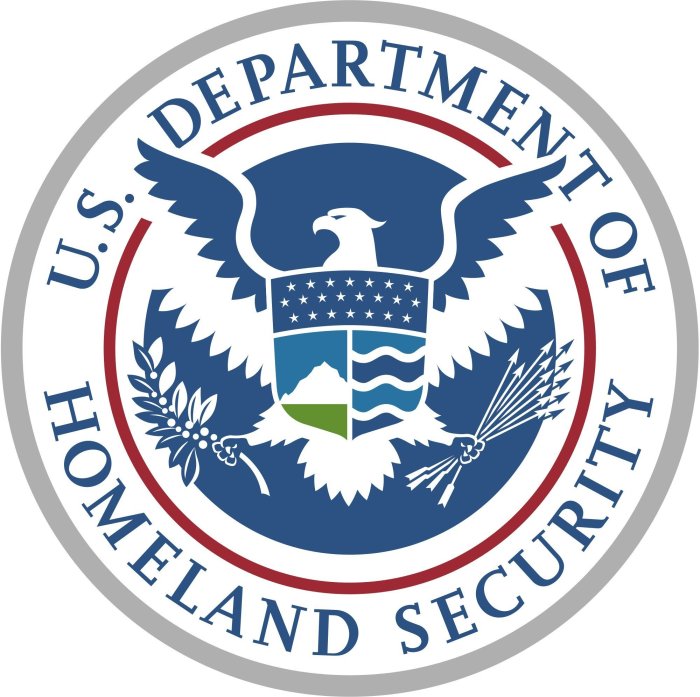Department of homeland security apush – The Department of Homeland Security (DHS) is a crucial agency responsible for safeguarding the United States against threats to its national security. Established in 2002, DHS has undergone significant evolution and plays a multifaceted role in protecting the nation from a wide range of challenges.
This comprehensive analysis delves into the mission, structure, policies, controversies, and future outlook of DHS, providing insights into its critical role in maintaining national security.
Department of Homeland Security Overview
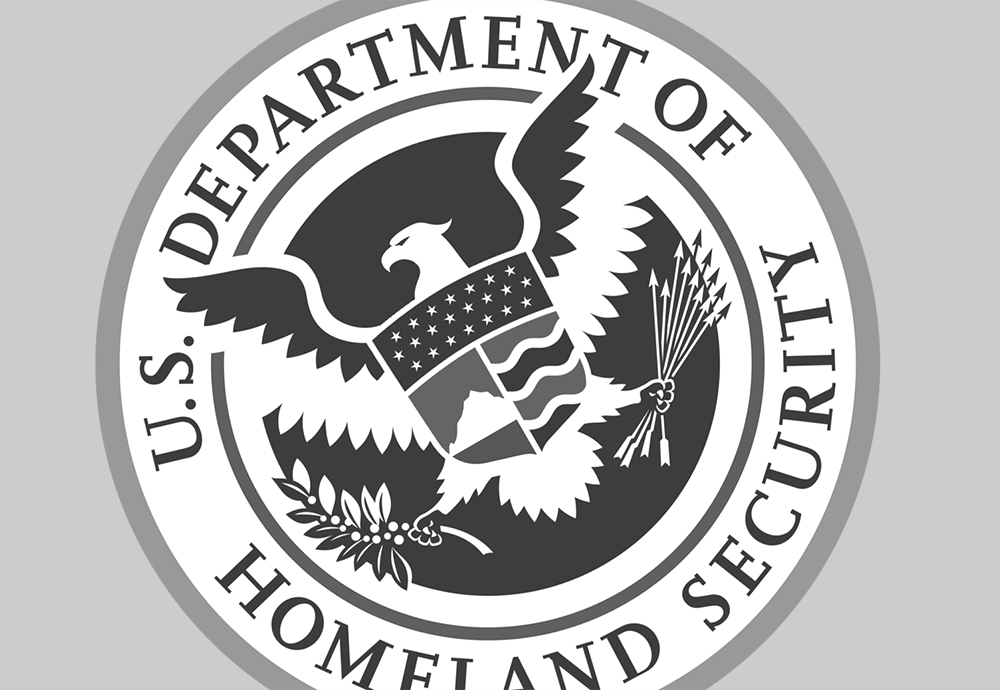
The Department of Homeland Security (DHS) is a United States federal executive department with the primary mission of protecting the United States from terrorism, natural disasters, and other emergencies.
DHS was created in response to the September 11, 2001 terrorist attacks and is the largest and most complex federal department in the United States.
Key Functions and Responsibilities
- Preventing terrorism
- Securing the borders
- Enforcing immigration laws
- Responding to natural disasters
- Protecting critical infrastructure
DHS Organizational Structure
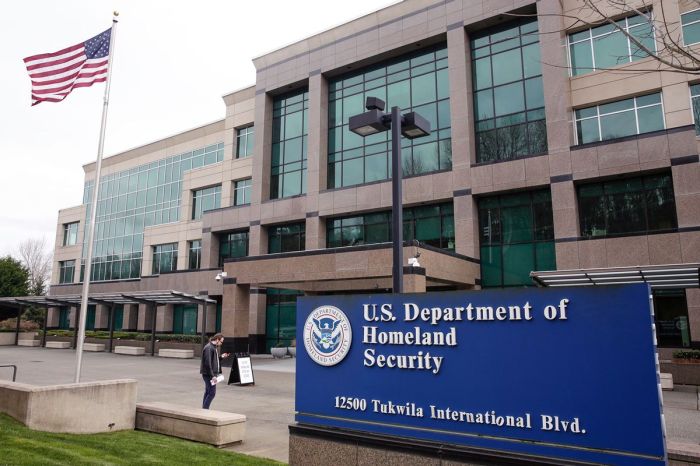
The Department of Homeland Security (DHS) is organized into several major components, each with specific roles and responsibilities in protecting the nation from terrorism, natural disasters, and other threats.
Cybersecurity and Infrastructure Security Agency (CISA)
CISA is responsible for protecting the nation’s critical infrastructure, including information systems, networks, and physical assets. It also works to improve the resilience of the nation’s infrastructure to cyber attacks and other threats.
Customs and Border Protection (CBP)
CBP is responsible for protecting the nation’s borders and enforcing immigration and customs laws. It also works to facilitate the flow of legitimate trade and travel.
Federal Emergency Management Agency (FEMA)
FEMA is responsible for coordinating the federal government’s response to natural disasters and other emergencies. It also works to help communities prepare for and recover from disasters.
Immigration and Customs Enforcement (ICE)
ICE is responsible for enforcing immigration laws and investigating immigration-related crimes. It also works to combat human trafficking and other transnational crime.
Transportation Security Administration (TSA)
TSA is responsible for protecting the nation’s transportation systems from terrorism and other threats. It also works to ensure the safety of travelers and the efficiency of the transportation system.
DHS Policies and Initiatives: Department Of Homeland Security Apush

The Department of Homeland Security (DHS) implements a wide range of policies and initiatives aimed at enhancing national security and protecting the United States from threats.
These policies and initiatives cover a diverse array of areas, including border security, immigration enforcement, cybersecurity, and disaster response.
Border Security
- Enhanced border security measures, such as increased surveillance and personnel, have been implemented to deter illegal crossings and prevent the smuggling of contraband.
- The Secure Fence Act of 2006 authorized the construction of a fence along the US-Mexico border to deter illegal immigration.
Immigration Enforcement
- DHS enforces immigration laws and regulations, including the detention and deportation of undocumented immigrants.
- The Deferred Action for Childhood Arrivals (DACA) program provides temporary protection from deportation and work permits for certain undocumented immigrants who arrived in the United States as children.
Cybersecurity
- DHS leads efforts to protect the nation’s critical infrastructure from cyber threats.
- The National Cybersecurity and Communications Integration Center (NCCIC) provides guidance and assistance to organizations in responding to and mitigating cyberattacks.
Disaster Response
- DHS coordinates federal disaster response efforts through the Federal Emergency Management Agency (FEMA).
- FEMA provides assistance to states and localities during natural disasters and other emergencies.
DHS Challenges and Controversies
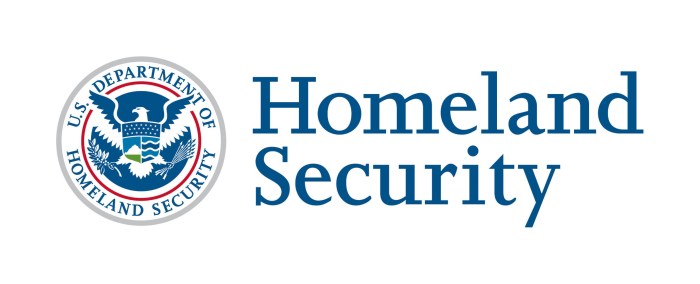
The Department of Homeland Security (DHS) has faced numerous challenges and controversies since its creation in 2002. These include concerns about its vast authority, effectiveness in addressing national security threats, and the impact of its policies on civil liberties.
One of the major challenges facing DHS is the coordination of its various agencies and components. The department is composed of 22 different agencies, each with its own mission and priorities. This can lead to overlap and duplication of efforts, as well as difficulty in sharing information and resources.
Another challenge for DHS is the constantly evolving nature of the threats it faces. The department must be able to adapt quickly to new threats, such as the rise of cyberterrorism and the threat of homegrown extremism. This requires a constant investment in new technologies and training, as well as a willingness to change its policies and procedures.
DHS Effectiveness
The effectiveness of DHS in addressing national security threats has been the subject of much debate. Some critics argue that the department has not been able to prevent major terrorist attacks, such as the 9/11 attacks and the Boston Marathon bombing. Others argue that DHS has made significant progress in preventing future attacks, and that it is difficult to know for sure how many attacks it has prevented.
A 2016 report by the RAND Corporation found that DHS has made “significant progress” in improving its effectiveness. The report found that the department has improved its coordination and information sharing, and that it is better prepared to respond to a major terrorist attack.
Public Perception and Political Debates
The public perception of DHS has been mixed. Some polls have found that a majority of Americans approve of the department’s work, while others have found that a majority disapprove. The department has been criticized for its handling of immigration, its use of surveillance technologies, and its treatment of detainees.
DHS has also been the subject of numerous political debates. Some members of Congress have called for the department to be dismantled, while others have defended its record. The department’s budget and authorities have been the subject of much debate, and it is likely to continue to be a topic of political debate in the years to come.
DHS Future and Outlook
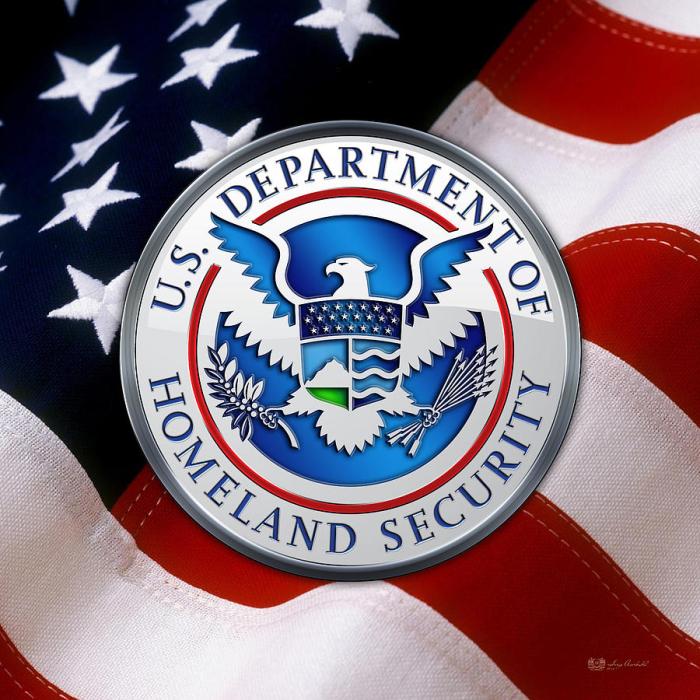
The Department of Homeland Security (DHS) plays a vital role in safeguarding the United States from evolving threats. As the world continues to change, DHS must adapt and innovate to address emerging challenges and ensure national security.
Several potential future developments and trends may shape DHS’s role:
- Increased use of technology:DHS will likely continue to invest in advanced technologies, such as artificial intelligence (AI) and data analytics, to enhance its capabilities.
- Focus on cybersecurity:Cybersecurity threats are constantly evolving, and DHS will need to prioritize protecting critical infrastructure and sensitive information.
- Enhanced border security:DHS will continue to strengthen border security measures to prevent illegal entry and the smuggling of contraband.
- Increased emphasis on resilience:DHS will work to enhance the nation’s resilience to natural disasters and other emergencies.
- Collaboration with international partners:DHS will continue to collaborate with international partners to address transnational threats.
Emerging Threats and Challenges, Department of homeland security apush
DHS faces a range of emerging threats and challenges, including:
- Terrorism:The threat of terrorism continues to evolve, with new groups and tactics emerging.
- Cyberattacks:Cyberattacks are becoming increasingly sophisticated and damaging, targeting critical infrastructure and sensitive information.
- Climate change:Climate change poses significant risks to national security, including increased natural disasters and displacement of populations.
- Pandemics:Pandemics can have a devastating impact on public health and the economy, and DHS plays a critical role in pandemic preparedness and response.
Role in Shaping National Security Policy
DHS will continue to play a significant role in shaping national security policy in the years to come. The department’s unique mission and capabilities make it well-positioned to address the evolving threats facing the United States.
DHS will likely continue to advocate for policies that enhance border security, strengthen cybersecurity, and promote resilience. The department will also work to ensure that its policies are aligned with the nation’s overall national security strategy.
Common Queries
What is the primary mission of DHS?
DHS is responsible for protecting the United States from terrorism, safeguarding its borders, enforcing immigration laws, ensuring cybersecurity, and responding to natural disasters.
How is DHS organized?
DHS comprises various components, including Cybersecurity and Infrastructure Security Agency (CISA), Customs and Border Protection (CBP), Federal Emergency Management Agency (FEMA), Immigration and Customs Enforcement (ICE), and Transportation Security Administration (TSA).
What are some of the major challenges faced by DHS?
DHS faces challenges such as terrorism, illegal immigration, cybersecurity threats, natural disasters, and political controversies.
